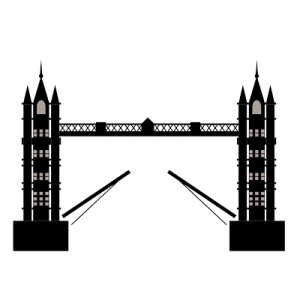What does"as approved" mean? I have seen several programs under these categories, but can't figure out what does it mean. Thanks!
As approved
Posted May 31, 2008 03:35
Posted May 31, 2008 17:48
Dear Dr.T, could you provide a little more context?
Posted May 31, 2008 20:42
On the ABA website they clasify LL.M.'s by category, i.e. Health Law, Tax Law, etc. One of the classifications is "As approved" and I want to know what is that. Thanks!
Posted Jun 01, 2008 07:56
Actually, I went to the ABA site, however I didn't see your "as apporved". As a matter of fact, to the contrary, I have found the following info:
A Note to Graduates of Law Schools Located Outside the United States:
Degrees Other Than a J.D. and Bar Admissions
In order to obtain a license to practice law in the United States, all candidates must apply for bar admission through a state board of bar examiners. Although this board is ordinarily an agency of the highest court in the jurisdiction, occasionally the board is connected to the state's bar association. The criteria for eligibility to take the bar examination or to otherwise qualify for bar admission are set by each state, not by the ABA or the Council of the Section of Legal Education and Admissions to the Bar.
In order to sit for the bar examination, most states require an applicant to hold a Juris Doctor (J.D.) degree from a law school that meets established educational standards. A J.D. earned at an ABA-approved law school meets the educational requirements in every jurisdiction in the United States. For those individuals who have not earned a J.D. degree from an ABA-approved law school, bar admission authorities have developed varying requirements and criteria to ascertain if such individuals meet the minimum educational requirements for bar admission. In most jurisdictions individuals who lack such a J.D. will find that they do not satisfy the minimum educational requirements for bar admission and are ineligible to take the bar exam. In some of the remaining states, graduates of foreign law schools will find that additional schooling such as an LL.M. is required, and a few others recognize with regularity the sufficiency of a specific foreign legal education. A number offer an alternative licensure mechanism known as a Foreign Legal Consultant which is a limited license to practice. And finally, some jurisdictions will allow individuals to be eligible for admission without examination under certain conditions if they have been admitted to the bar in another U.S. jurisdiction.
In the past few years, there has been a large increase in the number of graduates from schools located outside the United States enrolled in advanced degree programs (such as the LL.M.). In fact, roughly half of all the individuals currently enrolled in LL.M. programs are graduates of foreign law schools. Upon graduating, many of these individuals return to their home country without seeking or obtaining bar licensure in the United States. However, an increasing number of these individuals seek to be admitted to a state bar.
Unlike the J.D. degree bestowed by an ABA-approved law school, which carries the indicia that the holder of that degree has completed a course of study imparting standards entitling him or her to engage in the practice of law, advanced degree programs at ABA-approved law schools are not regulated, and thus, not "approved." As a result, such degrees vary in content and rigor. In other words, the American Bar Association does NOT accredit degrees of any kind other than the J.D.
It is the position of the Council of the Section of Legal Education and Admissions to the Bar of the American Bar Association that no graduate degree in law (LL.M., M.C.L., S.J.D., etc.) is or should be a substitute for the first professional degree in law (J.D.) and that no graduate degree should substitute for the J.D. in order to meet the legal education requirements for admission to the bar.
As a result of the variance in state bar admission rules, the ABA strongly encourages individuals to contact the state board of bar examiners in the state(s) in which they are interested in being admitted to ascertain its requirements to sit for the bar examination. Contact information and a summary of bar admission requirements for all U.S. jurisdictions is available in the Section's Comprehensive Guide to Bar Admission Requirements publication which is available online at http://www.abanet.org/legaled/baradmissions/bar.html or through the ABA Service Center at 800.285-2221, Product Code: 5290087 (02ED).
Conclusion: non of the LL.M. is "approved" in a regular sense of the word....
A Note to Graduates of Law Schools Located Outside the United States:
Degrees Other Than a J.D. and Bar Admissions
In order to obtain a license to practice law in the United States, all candidates must apply for bar admission through a state board of bar examiners. Although this board is ordinarily an agency of the highest court in the jurisdiction, occasionally the board is connected to the state's bar association. The criteria for eligibility to take the bar examination or to otherwise qualify for bar admission are set by each state, not by the ABA or the Council of the Section of Legal Education and Admissions to the Bar.
In order to sit for the bar examination, most states require an applicant to hold a Juris Doctor (J.D.) degree from a law school that meets established educational standards. A J.D. earned at an ABA-approved law school meets the educational requirements in every jurisdiction in the United States. For those individuals who have not earned a J.D. degree from an ABA-approved law school, bar admission authorities have developed varying requirements and criteria to ascertain if such individuals meet the minimum educational requirements for bar admission. In most jurisdictions individuals who lack such a J.D. will find that they do not satisfy the minimum educational requirements for bar admission and are ineligible to take the bar exam. In some of the remaining states, graduates of foreign law schools will find that additional schooling such as an LL.M. is required, and a few others recognize with regularity the sufficiency of a specific foreign legal education. A number offer an alternative licensure mechanism known as a Foreign Legal Consultant which is a limited license to practice. And finally, some jurisdictions will allow individuals to be eligible for admission without examination under certain conditions if they have been admitted to the bar in another U.S. jurisdiction.
In the past few years, there has been a large increase in the number of graduates from schools located outside the United States enrolled in advanced degree programs (such as the LL.M.). In fact, roughly half of all the individuals currently enrolled in LL.M. programs are graduates of foreign law schools. Upon graduating, many of these individuals return to their home country without seeking or obtaining bar licensure in the United States. However, an increasing number of these individuals seek to be admitted to a state bar.
Unlike the J.D. degree bestowed by an ABA-approved law school, which carries the indicia that the holder of that degree has completed a course of study imparting standards entitling him or her to engage in the practice of law, advanced degree programs at ABA-approved law schools are not regulated, and thus, not "approved." As a result, such degrees vary in content and rigor. In other words, the American Bar Association does NOT accredit degrees of any kind other than the J.D.
It is the position of the Council of the Section of Legal Education and Admissions to the Bar of the American Bar Association that no graduate degree in law (LL.M., M.C.L., S.J.D., etc.) is or should be a substitute for the first professional degree in law (J.D.) and that no graduate degree should substitute for the J.D. in order to meet the legal education requirements for admission to the bar.
As a result of the variance in state bar admission rules, the ABA strongly encourages individuals to contact the state board of bar examiners in the state(s) in which they are interested in being admitted to ascertain its requirements to sit for the bar examination. Contact information and a summary of bar admission requirements for all U.S. jurisdictions is available in the Section's Comprehensive Guide to Bar Admission Requirements publication which is available online at http://www.abanet.org/legaled/baradmissions/bar.html or through the ABA Service Center at 800.285-2221, Product Code: 5290087 (02ED).
Conclusion: non of the LL.M. is "approved" in a regular sense of the word....
Posted Jun 03, 2008 03:54
Thanks for all your time! In the ABA website, under "Post J.D. Programs by Category" at http://www.abanet.org/legaled/postjdprograms/postjdc.html you will find different categories, the seventh is As Approved.
1) Admiralty/Marine Affairs/Ocean and Coastal
2) Agriculture Law
3) American Business Law
4) American Law
5) American Legal Studies
6) American Legal System
7) As Approved
California, University of-Los Angeles, LL.M.
Georgetown University, S.J.D.
Indiana University-Bloomington, LL.M.; Ph.D.
Louisiana State University, LL.M.; M.C.L.
Michigan, University of, LL.M.; M.C.L.; S.J.D.
Northwestern University, LL.M.; M.S.L.; S.J.D.
Pennsylvania, University of, LL.M.; M.C.L.; S.J.D.
Pittsburgh, University of, J.S.D.
Stanford University, J.S.D.; J.S.M.
Vanderbilt University, LL.M.
Wisconsin, University of, LL.M.; M.L.I.; S.J.D.
I want to know what does this mean. Thank you very much again!
1) Admiralty/Marine Affairs/Ocean and Coastal
2) Agriculture Law
3) American Business Law
4) American Law
5) American Legal Studies
6) American Legal System
7) As Approved
California, University of-Los Angeles, LL.M.
Georgetown University, S.J.D.
Indiana University-Bloomington, LL.M.; Ph.D.
Louisiana State University, LL.M.; M.C.L.
Michigan, University of, LL.M.; M.C.L.; S.J.D.
Northwestern University, LL.M.; M.S.L.; S.J.D.
Pennsylvania, University of, LL.M.; M.C.L.; S.J.D.
Pittsburgh, University of, J.S.D.
Stanford University, J.S.D.; J.S.M.
Vanderbilt University, LL.M.
Wisconsin, University of, LL.M.; M.L.I.; S.J.D.
I want to know what does this mean. Thank you very much again!
Posted Jun 03, 2008 07:49
OK, now I see...
Actually I don't know, but here's my guess: Maybe it refers to a program which was "approved" without giving a specification - case in point, Michigan (where I'm heading to)has two LL.M. programs (taxation and general), whereas int'l tax is a specialty "approved" I haven't seen that in the category of general studies the program of Michigan is indicated. So, my hunch is that Michigan was "approved" for int'l tax and "just" LL.M. without giving a specification...
Actually I don't know, but here's my guess: Maybe it refers to a program which was "approved" without giving a specification - case in point, Michigan (where I'm heading to)has two LL.M. programs (taxation and general), whereas int'l tax is a specialty "approved" I haven't seen that in the category of general studies the program of Michigan is indicated. So, my hunch is that Michigan was "approved" for int'l tax and "just" LL.M. without giving a specification...
Posted Jun 04, 2008 03:10
Ok, that sounds as a good explanation. Thanks.
Hot Discussions
-
Georgetown LLM 2024/2025 applicants
Nov 16 09:22 PM 40,101 209 -
Oxford 2025-2026 BCL/MSCs/MJUR/MPHIL/MLF
Nov 15 04:43 AM 2,052 44 -
MIDS - 2024-25
Nov 15 12:52 AM 1,837 16 -
Indian Tribes as US Jurisdictions of law attorney admission?
Nov 08, 2024 765 6 -
Warwick or Birmingham
Nov 10, 2024 1,163 5 -
EU citizen barred in the US -- will an LLM from an EU school help me practice law somewhere in the EU?
Nov 15 12:58 AM 137 4 -
NUS vs Peking
Nov 09, 2024 183 4 -
LLM in ADR
Oct 23, 2024 390 4



